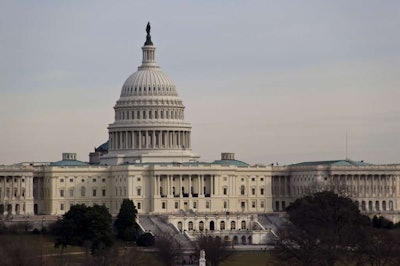 (Photo: Victoria Pickering / Flickr)
(Photo: Victoria Pickering / Flickr)The current surface transportation bill, MAP-21, is set to expire in September, and lawmakers are scrambling to reauthorize funding before that deadline.
However, a larger problem is expected to arise up to two months before MAP-21’s expiration: the Highway Trust Fund (HTF), the primary source of project funding, is expected to completely run out of money as early as July.
Related: As Highway Trust Fund insolvency looms, state DOTs stretch dollars through project prioritization
The Hill suggests five options for avoiding HTF insolvency:
1. Raise the gas tax. According to The Hill, the easiest solution would be to increase the federal fuel tax, which has remained at the same level since 1993. However, this option faces plenty of opposition from Republican lawmakers. A gas tax hike is backed by the U.S. Chamber of Commerce and the American Trucking Association (ATA), as well as House Democrats, who proposed a $0.15-per-gallon increase last year.
2. Account for inflation. The Hill notes that if lawmakers had indexed the gas tax to inflation in 1993, the current fuel tax would be $0.30-per-gallon and the HTF shortage would not exist today. This solution would also cease the need to debate a gas tax hike every time the HTF runs low. However, The Hill points out indexing to inflation could also appear to be another type of gas tax increase.
3. Implement VMTs. With more vehicles offering improvements in gas mileage, many vehicles are putting less money into the HTF through gas taxes, which means the roads are experiencing at least the same impact with fewer available maintenance and repair funds. The Hill reports that a new regulation requiring automakers to manufacture vehicle that average 54.5 miles per gallon by 2025 further accelerates this dilemma. A vehicle miles traveled (VMT) tax would charge drivers based on how much they use the roads rather than how much fuel they purchase. However, opponents criticize the use of transponders that would track each car’s mileage, noting privacy concerns.
Related: The pros and cons of transportation funding options
4. Collect taxes from oil wholesalers. Last year, Sen. Barbara Boxer (D-Calif.) proposed replacing the federal gas tax with a wholesale fuel tax that would collect revenue from oil wholesalers. The Hill notes that the wholesale option hasn’t gained much support from other lawmakers.
5. Transfer funds from other federal budget areas. The Hill reports that this “band-aid of a solution” is the most likely outcome. President Obama’s four-year, $302 billion transportation bill proposal suggests using $150 billion from tax reform to fund highways and infrastructure, while Means Committee Chairman Rep. Dave Camp (R-Mich.) called for the use of $125 billion from tax reform.
The Senate Environmental and Public Works Committee has begun working on its new highway bill, which could include some indexing to inflation In a press conference on Thursday, Boxer said the Senate EPW prioritizes promoting “fiscal responsibility by keeping current levels of funding plus inflation.”
The House Transportation Committee started working on its version of the bill in January. House Transportation Committee Chair Rep. Bill Shuster (R-Pa.) said he wants the committee to have the bill on the full House floor by August.












